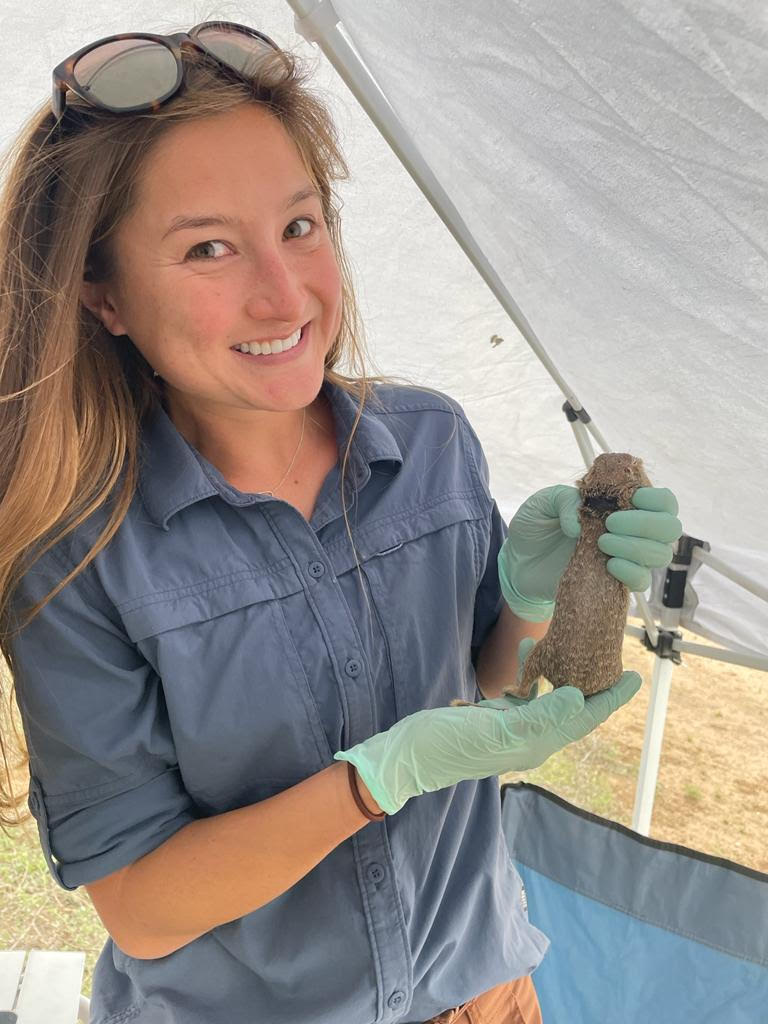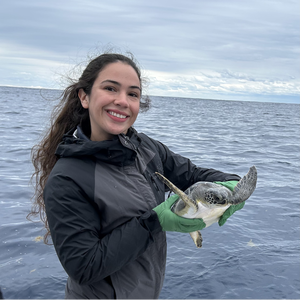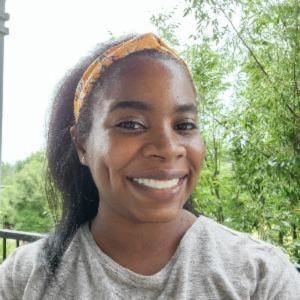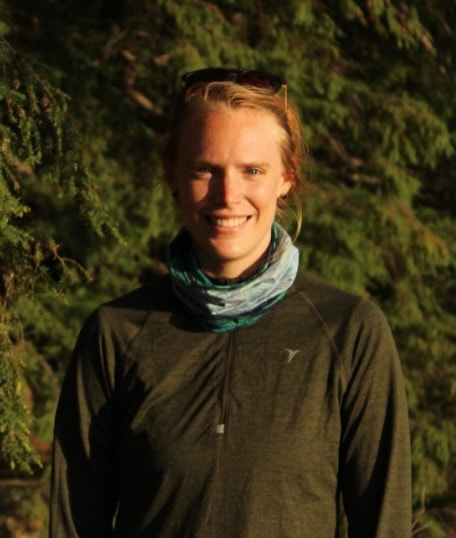0 Comments
Graduation is always bitter sweet and we had so many amazing seniors graduate this year -- the class that began under the most trying of circumstances in the early days of the pandemic. A few highlights and congratulations are in order:
Always inspiring and successful new students bringing their energy to the lab as well:
Congratulations to Hannah Hoff for being awarded the 2024 James Reveal Eriogonum Project Grant from the Eriogonum Society! Among Hannah's many ambitious endeavors, she is leading the development of a comprehensive plant DNA barcode library and nutritional database so that we can understand what fuels the migrations of large herbivores across Yellowstone. These little buckwheats are turning out to be big contributors, and the grant will help ensure we can account for all of them. We are all so excited to get back out and botanizing in Yellowstone this summer!
Congratulations to Bianca Brown, microbiome scientist extraordinaire, on her publication appearing today in Ecosphere! Spatiotemporal variation in the gut microbiomes of co-occurring wild rodent species is freely available via open access. It is a rare example of the type of insightful work that can develop through collaborations involving field, lab, and big-data analytical approaches to really understand what's going on with wildlife. It is part of our long-term collaboration with the UHURU project at Mpala Research Centre in Kenya.
The lab has been awarded a Life and Medical Sciences Seed Award from Brown's OVPR for 2024!
This $50,000 award will support improvements in our ability to use DNA barcoding to characterize gastrointestinal nematodes that infect tropical wildlife species. Our own Dr. Ezequiel Vanderhoeven is a world expert in the parasitology of tropical wildlife and the seed award will help us extend our funding base for OneHealth research at the nexus of animal health and ecology. Leveraging expert-verified data to bring wildlife parasitology into the genomics ageWe are on the cusp of a genomics revolution to usher in an era of precision wildlife parasitology—but achieving it requires reforming long-standing traditions in the field. Biologists and health practitioners need to monitor wildlife to ensure effective conservation and identify emerging infectious diseases that may threaten humans and livestock. But we may often misunderstand host-parasite interactions because we rely on overly simplistic methods to study parasite diversity in nature. Fortunately, emerging molecular and bioinformatic techniques can help overcome traditional limitations. We plan to establish genomic workflows to more precisely characterize the diversity and distribution of gastrointestinal parasites that infect wildlife in tropical hotspots. We will accomplish this by constructing and utilizing one of the largest expert-verified databases of helminth DNA in the world. This database will bridge the gap between today’s ‘gold-standard’ practice of using microscopes to painstakingly identify parasites in the field and tomorrow’s need for ‘field-ready’ methods that provide more cost-effective, accurate, and timely parasite identifications—especially for the practitioners who need these data at the right times and places to take action. We will initially use these emerging tools to map hard-to-identify parasites onto wildlife hosts in tropical forests—sloths, monkeys, and tapirs among others—in ways that are more robust than standard techniques could provide. This exciting venture features interdisciplinary collaboration among veterinarians, parasitologists, molecular biologists, and ecologists. It will provide world-class opportunities for students and researchers at Brown to engage with non-profit organizations that focus on wildlife conservation, health, and human livelihoods. PI: Tyler Kartzinel, Peggy and Henry D. Sharpe Assistant Professor of Environmental Studies, Assistant Professor of Ecology, Evolution, and Organismal Biology and the Institute at Brown for Environment and Society
Congratulations to Elin Videvall for earning a highly competitive SRC Starting Grant to join the faculty and open her lab at Uppsala University! Elin plans to lead projects involving the microbiomes of wildlife in a changing world. Elin joined the lab with a Swedish Research Council Postdoctoral Fellowship in 2021 and we are so proud to have had a small part in her journey.
The lab is thrilled to welcome Joselyne Chavez and Montana Stone to Brown! Both are keen to use combine ecological field experiments in with genomic lab technologies and computational approaches to advance our understanding of biology in a major way while also contributing to meaningful conservation. We couldn't be happier about the time we will get to have working with these top-notch scientists--they are both off to a great start!
I am extremely excited to share a new job opportunity as a core member of our group: Lab Manager in Ecological Genomics at Brown.
This is such a unique career opportunity in our field. The position will be salaried, starting around $60,000, and it is expected to provide job security, stability, and community over the long term. There will also be opportunities for career growth as we work together to establish a new Ecological Genomics center via Brown’s Genomics Core Facility. You will be able to help shape the future of your own position. From an insider's perspective, we very rarely see opportunities as good as this one. The formal job ad is pasted below. Please feel free to distribute via your networks or social media to help ensure any potential candidates you know may apply. The lab is incredibly excited to welcome Mary Burak! Mary is joining the lab as a Fulbright Scholar based in Kenya followed by an IBES Voss Postdoctoral Fellowship. Together these prestigious awards will support Mary for three years both in Kenya and at Brown. Mary will collaborate with a number of major NGOs as well as scholars at the University of Nairobi, the National Museums of Kenya, and Mpala Research Centre to address critical data needs for the conservation of large carnivores and herbivores across Kenya.
Mary completed a PhD in Os Schmitz's lab at Yale University in 2023. She is a star and we are so keen to learn from her and collaborate with her over the next few years and beyond! |
Archives
June 2024
Categories
All
|





 RSS Feed
RSS Feed
